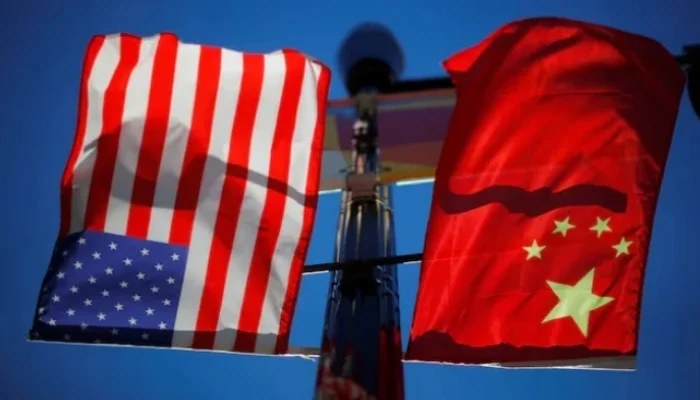Despite China’s harsh response of imposing a 125% tariff against the United States, President Trump has portrayed his tariff strategy as a positive move for America and the world, emphasizing that his policy is “doing really well.”
Investors offloaded US government bonds, the dollar weakened, and stocks experienced volatility after Beijing’s retaliation against Trump amplified concerns in already fragile global markets.
Trump triggered market turmoil last week by announcing sweeping import taxes on numerous trade partners, only to abruptly reduce them to 10 percent for 90 days on Wednesday, while simultaneously increasing levies on goods from China.
“We are doing really well on our tariff policy,” Trump stated in a post on his Truth Social network after China announced its latest tariff hike.
“Very exciting for America, and the World!!! It is moving along quickly,” he wrote.
The White House later indicated that Trump remained “optimistic” about a deal with China, and added that 15 other countries have offers “on the table” during his 90-day pause in their tariffs.
However, Press Secretary Karoline Leavitt added that “the president made it very clear, when the United States is punched he will punch back harder.”
The US and Beijing have been exchanging increasingly severe tariffs since last week.
Chinese President Xi Jinping offered his first major comments on the tensions on Friday, with state media quoting him as saying his country was “not afraid.”
Xi also suggested that the European Union and China should “jointly resist unilateral bullying practices” during discussions with Spain’s Prime Minister Pedro Sanchez.
‘Numbers Game’
Beijing announced after Xi’s comments that new tariffs of 125 percent on US goods would take effect Saturday—nearly matching the staggering 145 percent level imposed on Chinese goods entering America.
A Chinese Commerce Ministry spokesperson asserted that the United States bore full responsibility, dismissing Trump’s tariffs as a “numbers game” that “will become a joke.”
However, China’s finance ministry acknowledged that tariffs would not increase further, as almost no imports are viable at the new level.
Trump reiterated on Thursday that he was seeking a deal with Xi despite the escalating tensions.
“He’s been a friend of mine for a long period of time. I think that we’ll end up working out something that’s very good for both countries,” he told reporters.
But US officials have made it clear they expect Xi to initiate contact.
Pressure was mounting on Trump, however, as markets remained concerned.
Yields on crucial US government bonds, typically considered a safe haven, rose again Friday, indicating weaker demand as investors became alarmed.
The White House stated that it had no evidence to support traders’ speculation that China was offloading some of its vast holdings—which increase the cost of borrowing for the US government—in retaliation.
Meanwhile, policymakers at the US Federal Reserve warned of higher inflation and slower growth due to Trump’s tariff policy.
‘Countermeasures’
Economists warn that the disruption in trade between the tightly integrated US and Chinese economies will raise prices for consumers and could trigger a global recession.
Ipek Ozkardeskaya, an analyst at Swissquote bank, told AFP that the tariff figures were “so high that they don’t make sense anymore,” but said China was “now ready to go as far as needed.”
The rest of the world is still calibrating its response.
Trump on Thursday described the European Union—which was initially hit with 20 percent tariffs by Trump—as “very smart” for abstaining from retaliatory levies.
Top EU officials and Chinese leaders are scheduled to hold their next summit marking 50 years of ties in China in July, Brussels announced. EU trade chief Maros Sefcovic will hold talks in Washington on Monday.
However, 27-nation bloc chief Ursula von der Leyen told the Financial Times on Friday that it retained a “wide range of countermeasures,” including a potential hit on digital services that would target US tech firms.



